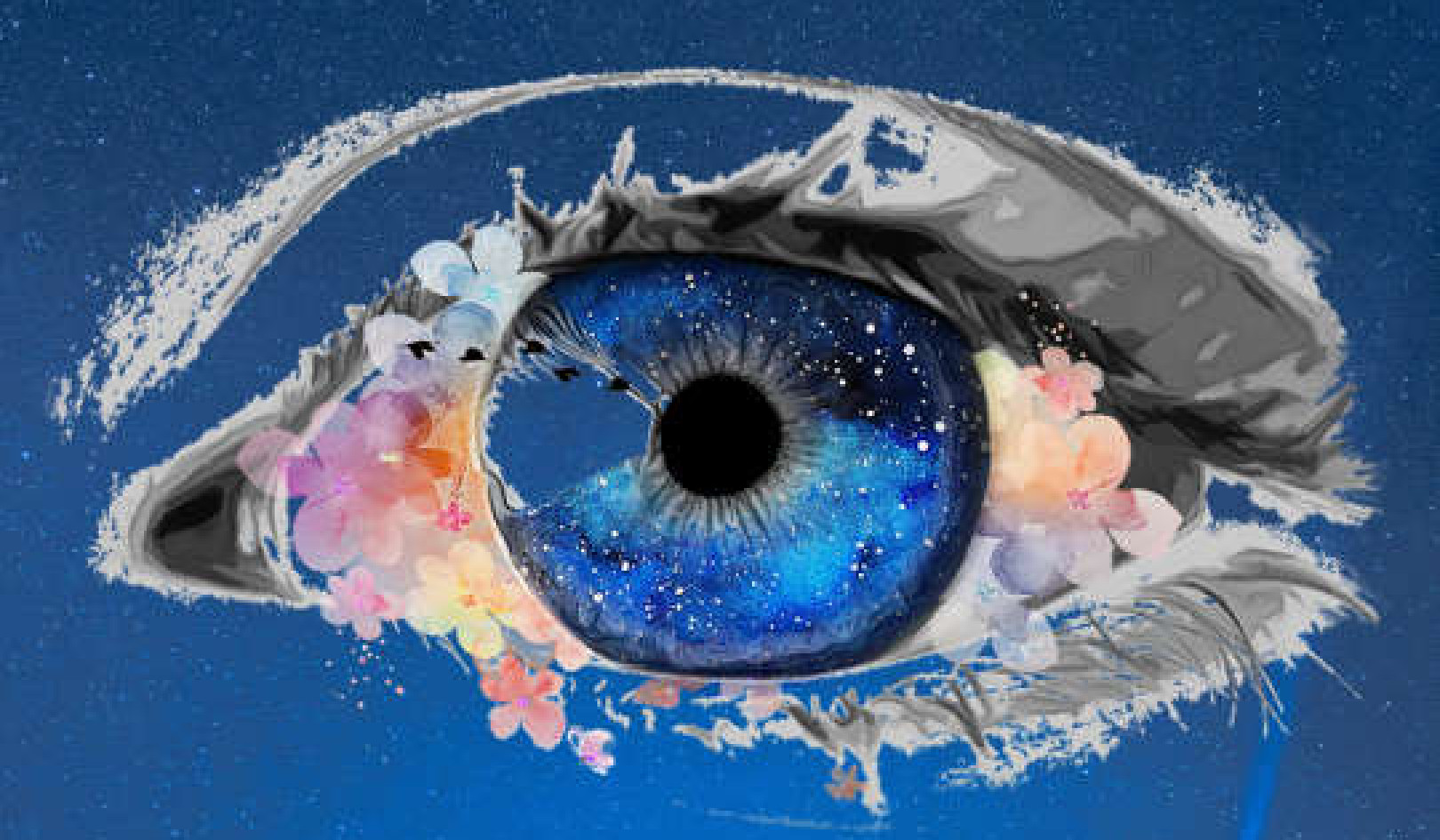
Scientist and philosopher may argue to the end of time, but meanwhile the human soul thirsts, and psychologist, priest, and mystic have the temerity to suggest that there may be ways of approach to the ultimate mysteries other than laboratory observation and pure logic. For while scientist and logician dissect and analyze, the mystic looks for meaning in the whole.
At each moment the mystic accepts the whole of his experience, including himself as he is, his circumstances as they are, and the relationship between them as it is. Wholeness is his keyword; his acceptance is total, and he excludes no part of his experience, however unsavory it may be. And in this he discovers that wholeness is holiness, and that holiness is another name for acceptability.
He is a holy man because he has accepted the whole of himself and thus made holy what he was, is, and shall be in every moment of his life. He knows that in each of those moments he is united with God, and that whether he is saint or sinner the intensity of that union never changes. For God is the wholeness of life, which includes every possible aspect of man and is known in accepting the whole of our experience at each moment. And for those who do not understand the word “God,” I quote from Goethe’s Fragment upon Nature:
Nature! We are encompassed by her, enfolded by her—impossible to escape from her and impossible to come nearer to her....The most unnatural also is nature. Who sees her not on all sides sees her truly nowhere....At each moment she starts upon a long, long journey and at each moment reaches her end....She lets every child enlarge upon her, every fool judge her, thousands pass heedlessly over her, seeing nothing; yet she has friends among all and has her recompense from all. Even in resisting her laws one obeys them; and one works with her even in desiring to work against her....Love is her crown. Only through love does one come near her....She has isolated all things so that she may bring all together....All is eternally present in her, for she knows neither past nor future. For her the present is eternity.
Freedom and Libertinism
Indeed, Goethe’s words seem to suggest a freedom of terrifying possibilities, possibilities which the sages of Asia have known and understood, and which the mystics of Christianity may also have known but of which they have spoken only with the greatest care. For all things are possible to the free man—but not probable.
His freedom is founded in the knowledge that his union with God, life, or nature can never be destroyed; that while he lives (and perhaps when he is dead) he can never do anything but express God or nature in all that he thinks and does.
He is free because he knows that even if he descends to the uttermost depths of depravity he can in no way deny or separate himself from a universe which includes all extremes and hence can suffer from none. For as God “maketh his sun to rise on the evil and the good” so also He provides them with that of which His sun is a symbol—Himself. As Whitman says in his poem “To a Common Prostitute,”
Not till the sun excludes you do I exclude you,
Not till the waters refuse to glisten for you and the leaves to rustle for you, do my words refuse to glisten and rustle for you.
Thus in the freedom of the spirit we understand that whether we love life or loathe it, whether we are filled with compassion or hatred, wonder or lust, beauty or horror, wisdom or ignorance—each and all of these opposites are as acceptable as day and night, calm and storm, waking and sleeping. We do not feel bound through any preconceived pattern of good character to react to our experience in the “proper” way; at any moment we may react to that experience just exactly as we please and consciously be just as uninhibited as the wild animal is by instinct.
In sorrow the free man feels himself free to weep, in pain to scream, in anger to kill, in tedium to get drunk, and in laziness to idle. It is precisely this feeling of freedom which absolves him from the necessity of doing these things.
He is like a man with a fire hose; the nozzle is his physical body and brain, and the water is the power of life. He is free to turn that hose in any conceivable direction, for by no twist or turn can he cut off the supply of life-giving water which never ceases to flow out in all its power. In moods of depression or sluggishness we may think that it has run low, but this is only because we do not give the mood freedom to expand itself; we are pointing the nozzle at the ground and the force we employ to keep it down is our effort to repress the mood.
The Dance and the Center
We have a popular phrase that describes this freedom—“Let yourself go!” In the language of religion and psychology it is called self-abandonment. Essentially self-abandonment to life is a knack. A deliberate attempt to abandon oneself cannot be done without faith, for it seems like taking a plunge into a roaring torrent.
Confucius tells of a man who managed to come safely down a huge waterfall by abandoning himself to the nature of falling water. But faith will follow abandonment provided we do not hang about on the brink and prevent ourselves from jumping by an increasing rush of misgivings—provided we jump immediately. This is to abandon yourself to your experience, your state of mind as it is at this very moment, being prepared to let it take you wherever it wills.
But, as soon as you let life live you, you discover that you are living life with an altogether new fullness and zest. To return to the analogy of the dance, it is as if you allowed your partner, life, to swing you along until you so get the “feel” of the dance that you are doing the “swinging” just as much as your partner. And then she will laugh at you and tell you that you were doing it all the time, only that you were so busy trying to figure out the steps by yourself that you forgot your partner and even forgot that it was a dance.
Thus the free man has the feeling of an unchanging center in himself—a center which is not exactly in his ego and not exactly in life, nature, or the unconscious as independent of the ego. It is the middle of the dance, the point around which the two partners revolve and in which they realize union.
He is free because this center makes him feel absolutely secure and at home in the universe; he can take it anywhere, make it do anything, for, as Lao Tzu says of the Tao, “Using it, he finds it inexhaustible.”
This center is the point on which his feeling of wholeness depends, and it develops out of faith—because he trusts and abandons himself to life on the one hand and to himself on the other, and also to the dance that is between them. God imparts His life and strength to all creatures, trusting them to use it as they will, because God is the principle of faith and love.
When man can have that same faith and love for all the creatures of his mind, which are the states of his mind from moment to moment, then he becomes at one with God. Indeed, the kingdom of heaven is within us—microcosm of the macrocosm—and man finds his freedom through faith in his own universe, making the sun of his acceptance to rise on the evil and the good.
Now in this there is profound humility, for as God knows Himself in the sinner as well as in the saint, in the slime as well as in the stars, so also man, in partaking of the freedom of God, must recognize himself in his depths as well as in his heights. For our true instructors in wisdom are not the sages and their writings but the creatures of our own minds, the gods and demons of thought and feeling and their reactions to the outer world of experience. And of these demons the blackest of all is called Lucifer, the bearer of light, for he is made to show us that there is light in the darkness as well as in the light. In the words of Monoimus the Gnostic:
Cease to seek after God (as without thee), and the universe, and things similar to these; seek Him from out of thyself,...and learn whence is sorrow and joy, and love and hate, and waking though one would not, and sleeping though one would not, and getting angry though one would not, and falling in love though one would not. And if thou shouldst closely investigate these things, thou wilt find Him in thyself, one and many, just as the atom; thus finding from thyself a way out of thyself.
Copyright ©2018 by Joan Watts and Anne Watts.
Printed with permission from New World Library
www.newworldlibrary.com
Article Source
The Meaning of Happiness: The Quest for Freedom of the Spirit in Modern Psychology and the Wisdom of the East
by Alan Watts
 Deep down, most people think that happiness comes from having or doing something. Here, in Alan Watts’s groundbreaking third book (originally published in 1940), he offers a more challenging thesis: authentic happiness comes from embracing life as a whole in all its contradictions and paradoxes, an attitude that Watts calls the “way of acceptance.” Drawing on Eastern philosophy, Western mysticism, and analytic psychology, Watts demonstrates that happiness comes from accepting both the outer world around us and the inner world inside us — the unconscious mind, with its irrational desires, lurking beyond the awareness of the ego.
Deep down, most people think that happiness comes from having or doing something. Here, in Alan Watts’s groundbreaking third book (originally published in 1940), he offers a more challenging thesis: authentic happiness comes from embracing life as a whole in all its contradictions and paradoxes, an attitude that Watts calls the “way of acceptance.” Drawing on Eastern philosophy, Western mysticism, and analytic psychology, Watts demonstrates that happiness comes from accepting both the outer world around us and the inner world inside us — the unconscious mind, with its irrational desires, lurking beyond the awareness of the ego.
Click here for more info and/or to order this paperback book and/or download the e-textbook edition.
About the Author
 Alan Watts (January 6, 1915 – November 16, 1973) was a British-born American philosopher, writer, speaker, and counterculture hero, best known as an interpreter of Asian philosophies for a Western audience. He wrote over 25 books and numerous articles applying the teachings of Eastern and Western religion and philosophy to our everyday lives.
Alan Watts (January 6, 1915 – November 16, 1973) was a British-born American philosopher, writer, speaker, and counterculture hero, best known as an interpreter of Asian philosophies for a Western audience. He wrote over 25 books and numerous articles applying the teachings of Eastern and Western religion and philosophy to our everyday lives.
More books by this Author
at InnerSelf Market and Amazon




























